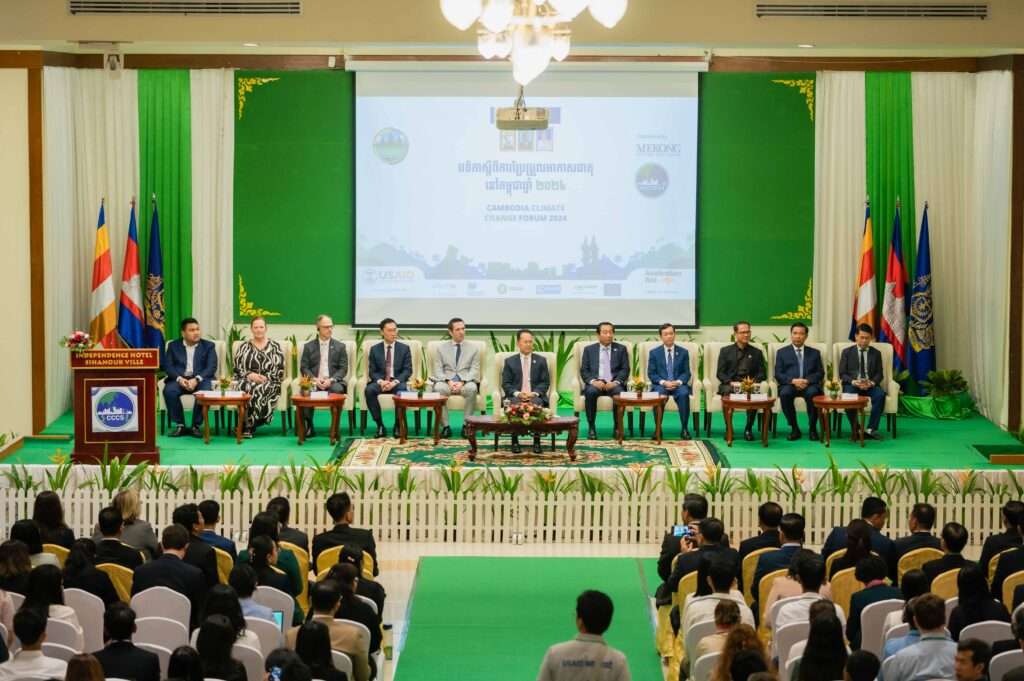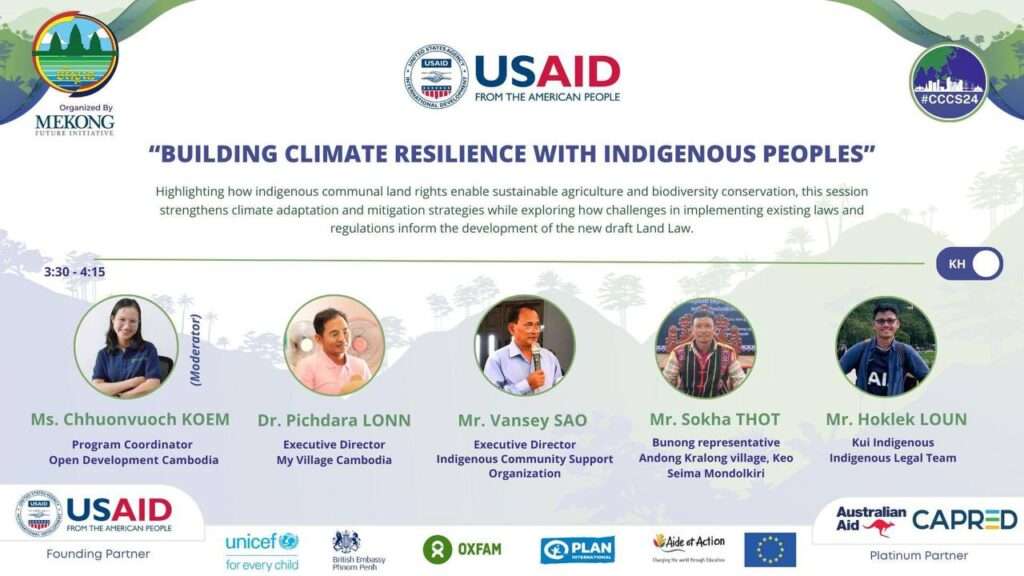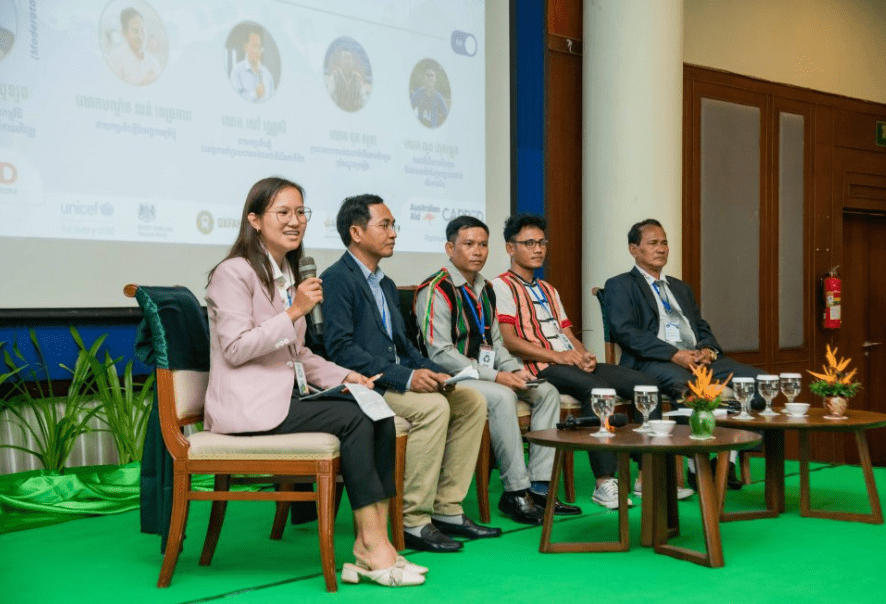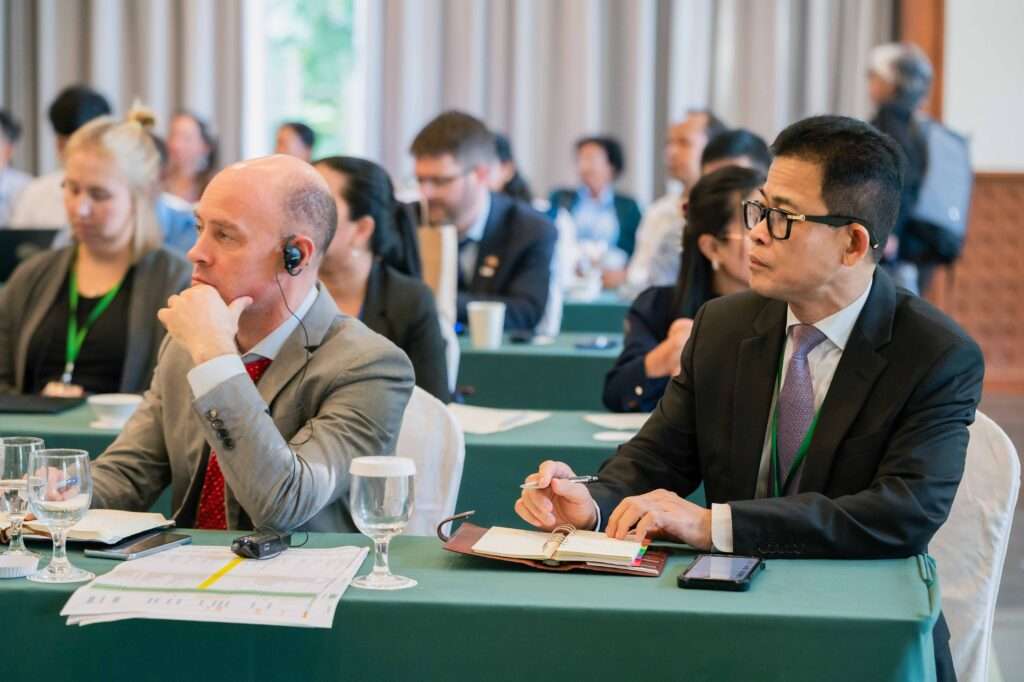Building climate resilience with indigenous peoples: Highlights from the Cambodia Climate Change Forum 2024
Cambodia Climate Change Forum 2024 (CCCF24) commenced on 24 October 2024, in Preah Sihanouk province, Cambodia. The event brought together a diverse audience with more than 300 students, community members, indigenous community representatives, environmental activists, civil society organizations and governmental agency representatives, and international representatives from the United States, the United Kingdom, and Australia. They came together to address the country’s climate vulnerabilities and explore adaptive solutions. The call to action came from the Minister of Environment, urging a drive forward on the global $100 billion climate finance commitment to support Cambodia.
Open Development Cambodia (ODC), under the USAID-Civil Society project FHI360-CSS, hosted a panel, “Building Climate Resilience with Indigenous Peoples,” exploring how indigenous land rights are significantly interconnected with climate resilience and biodiversity conservation. The panel featured distinguished members:
- Ms. Koem Chhuonvuoch – Moderator. ODC’s Natural Resource Management Program Coordinator
- Dr. Lonn Pichdara – Executive Director, My Village Cambodia (MVi)
- Mr. Sao Vansey – Executive Director, Indigenous Community Support Organization (ICSO)
- Mr. Loun Hoklek – Kui indigenous person and a member of the Indigenous Legal Team
- Mr. Sokha Thot – Bunong indigenous person, Chief of Andoung Kralong Village.
A powerful case for indigenous land rights in climate action
The panel highlighted that Cambodia stands out in the Indo-China region for its active promotion of customary tenure, including indigenous land titling (CLT), Community Protected Areas (CPA), and Community Forestry (CF). These frameworks, designed following international standards, secure indigenous land rights and play a critical role in preserving ecosystems.
ODC has published a bilingual profile page on its website, showcasing information on registered indigenous communal lands and the self-identification of indigenous communities. This profile page provides detailed data on the total registered communal lands and sub-decrees and includes an interactive map to enhance accessibility and user engagement with community information.
Indigenous perspectives on sustainable practices and climate resilience
Mr. Thot shared how his community’s traditional land management, including the use of organic farming methods and ecotourism, supports climate resilience. He underscored the ecological benefits of these practices, which contribute to sustainable agricultural methods and foster biodiversity. Adding to this, Dr. Dara discussed initiatives in Stung Treng and Mondulkiri, where indigenous-led forest conservation efforts have proven effective in reducing deforestation and enhancing resilience against climate change impacts.
Legal and financial challenges
Despite the significant progress made, panelists pointed out ongoing challenges in the land registration process. Mr. Dara called for a standardized approach to defining indigenous groups to streamline multi-ministerial processes while Mr. Hoklek highlighted the slow processes and funding gaps that often hinder effective support. He urged an enhanced public dialogue to expedite land registration, stressing that traditional practices hold the potential for broader climate solutions.
Moving forward with indigenous leadership in climate resilience
The panel emphasized that meaningful inclusion of indigenous voices is essential for sustainable climate strategies. Cambodia’s commitment to strengthening legal frameworks for indigenous land rights is a promising step toward achieving both environmental protection and cultural preservation. As climate finance commitments grow, ensuring that indigenous communities are equipped to safeguard their land and lead sustainable practices remains crucial. By recognizing and approving the traditional knowledge of indigenous peoples, Cambodia not only secures its natural resources but also contributes to climate resilience. This session at CCCF24 highlighted the path toward a collaborative and inclusive climate resilience strategy for Cambodia and beyond.
CCCF24 aligned closely with the objectives and themes of the Conference of the Parties (COP) events, underscoring Cambodia’s commitment to global climate goals and collaborative efforts to mitigate climate change impacts. The annual forum highlighted Cambodia’s progress in addressing climate-related challenges. The forum brought together contributions from experts across diverse sectors, including government, private industry, and NGOs, to foster knowledge exchange and promote climate resilience strategies. The key highlights were reported and brought to the UN Climate Change Conference in Baku, Azerbaijan on 11–22 November 2024.
To promote open data on climate change, ODC published various climate change data including





